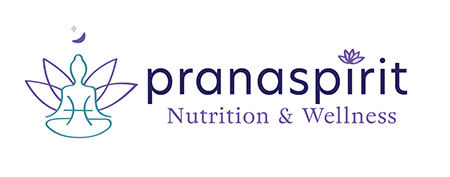When it comes to vitamin and mineral supplementation, you may ask, “Are they necessary? Are they the right choice for me?” Regardless of the answer for your case, it’s important to first focus on getting nutrients from a well-balanced diet. A diet rich in whole grains, fruits, vegetables, and good sources of protein are the foundations for overall well-being.
A whopping 50 percent of adults in the United States take supplements! (7) Many folks may not need them, but some groups can find them beneficial.
![]()
So, who needs supplements the most?
That would be the elderly, vegetarians, and vegans (people who do not eat any animal products, including meat, fish, dairy, eggs, and honey), anyone with a nutrient deficiency, women of childbearing age, and pregnant and breastfeeding women (1). Of all these groups, let’s focus on pregnant moms-to-be.
Did you realize that pregnant moms are not only feeding themselves, but also their babies? To allow your baby to develop properly, your nutrient needs become greater and more specific. And with greater and more specific nutrient needs, more supplements may be recommended – even for someone with a well-balanced diet. As mentioned earlier, a well-balanced diet is the foundation for overall well-being. So, let’s find out what pregnant mommas should take to optimize their health.
![]()
A Registered Dietitian Nutritionist’s Recommendations for Pregnancy
Before going into the details, we want to make sure you know that the following information is for educational purposes only, and the information presented here does not constitute a patient-to-provider relationship. To find out what’s best for your situation, please speak with your doctor and dietitian.
Ilene Cohen, Registered Dietitian Nutritionist, and owner here at PranaSpirit Nutrition & Wellness, LLC in Santa Monica, CA, recommends that at a minimum, moms-to-be should take a prenatal multivitamin.
The multivitamin ensures that both mom and baby are receiving a wide assortment of important nutrients that will support the pregnancy,
Ilene says.
In addition, Ilene talks about the importance of adequate magnesium and vitamin D, and when supplements may be beneficial.
Even though these nutrients are often included in the prenatal multivitamin, they don’t always have enough – and they’re super important for enhancing calcium absorption.
Lastly, Ilene’s take on omega-3 supplements: “If an omega-3 supplement may be beneficial for your particular case, one with DHA will help with the baby’s brain, nervous system, and eye development.”
With calcium, Ilene recommends consuming plenty of calcium-rich foods in at least one meal a day. “Instead of supplements, you can get calcium from eating dairy products, broccoli, dark leafy green vegetables, and wild fish with bones, like sardines and wild salmon. Be sure if you’re consuming canned fish that you choose BPA-free versions,” Ilene adds. (BPA is a chemical found in some plastics and the lining of some cans. It can be toxic if we are exposed to it in large quantities.) “With whole food sources, more of the calcium will enter your bones, where it needs to go, rather than circulate in the blood.”
And to make sure you get the most benefit possible from eating calcium-rich foods, Ilene suggests spacing them out when you have the calcium-rich meal and when you take the multivitamin – by at least two hours.
Two hours? You may think that’s inconvenient, but there’s a reason!
“Calcium and iron are absorbed in the same part of the digestive tract so therefore, they compete for absorption,”adds Ilene, “if they’re taken together, neither will absorb as well as they would if taken with time in between each. Waiting at least two hours will ensure that the iron in the multivitamin and calcium from foods will absorb to the best of their abilities.”
What does this mean for you? Moms out there – we want to make sure you’re nice and strong to lift your baby! (We’re guessing many of you know that calcium is critical for strong bones.) So, spread out that calcium and iron! In addition to giving, you that “Popeye” strength, iron is also essential for blood cells to carry oxygen to the tissues – which benefits both mom and baby.
![]()
Are Whole Food Supplements a Good Option for Pregnancy?
Now the question is: What kind of supplement should you take during pregnancy? There are two main options: whole food supplements and synthetic supplements. You may be asking, “What exactly are whole food supplements?” They are vitamin and mineral supplements containing nutrients derived directly from food. Foods (most commonly fruits and vegetables) are dehydrated to create a whole food pill or capsule (5). The dehydration process entails creating these supplements to include many of the naturally occurring chemicals (phytochemicals) found in foods.
Now you may be asking, “How do whole food supplements compare to synthetic (or ‘typical’) supplements?” For one, synthetic supplements are created in a lab: the molecular structure is identical to the same nutrients found in nature – so they’re designed to have the same effect. Sometimes the nutrients are originally taken from a food, but not necessarily. And synthetic supplements don’t have the phytochemicals that whole food supplements do (6). But here’s the cool part: some of the best synthetic supplements contain the most biologically active form of nutrients – for example, the important folate (naturally occurring from food) vs. folic acid – which many women may not be able to absorb as well – given that it requires a conversion in the body (we can talk about this more in another blog as there’s a lot to learn, but we just wanted to give you an example of an important nutrient like folate, which is critical to prevent neural tube defects).
After reading all this, you may think that whole food supplements are a better option for pregnancy. Well, not exactly and not always: Ilene usually recommends a high-quality synthetic supplement made with the most active forms of the nutrients for several reasons, including:
- Vitamin and mineral amounts. Each nutrient listed on a whole food supplement label is only an estimate; the nutrients are directly pulled from foods (5). In contrast, there are exact quantities listed for synthetic supplements.
- Effect of phytochemicals on absorption. Some of the phytochemicals in whole food supplements affect how much of those nutrients can be absorbed (like the way nutrients can compete, as we learned earlier). Synthetic vitamins are more bioavailable, meaning they’re often better absorbed because they don’t have these phytochemicals. Plus, the whole food supplements will make it harder for your doctor to know how much you’re benefiting from the supplements you choose to take. Supplements aside, we want to say that phytonutrients are super important for supporting a healthy body and pregnancy, but they’re best in foods vs. supplements.
- Genetics/genomics: Genetically, humans absorb nutrients differently, depending on transport proteins and other scientific pathways, so when whole foods supplements are taken by people who may lack certain conversion factors to absorb them, they may not get enough. An example is beta carotene, which requires a conversion in the body to get to the active form of vitamin A. 45 percent of people genetically can’t easily convert beta carotene to its active form (4). Given that vitamin A is also important in pregnancy, if a mom has this situation, she’s more likely to absorb vitamin A from a supplement that contains retinol – the active form of vitamin A.
- Extra ingredients and allergy risk. Whole food supplements often have herbs added to the formula, which may be problematic. “I’ve learned that many moms experience sensitivities and allergies from different herbs, so it’s best to keep a distance from them to avoid adverse food reactions.” Herbs are not bad, but we want to make sure your pregnancy is as smooth as it can be.

Which Supplement Brands Are Recommended?
There are many supplement brands to choose from, but not all companies are created equal. To make sure you’re getting what the bottle claims, choose what’s recommended by your doctor or dietitian. Or look for a USP stamp on the front of the bottle – this tells you the vitamin has been checked for quality (it has what the bottle claims)! In addition, here are some of Ilene’s favorite brands of professional line supplements: Pure Encapsulations, Biotics, Integrative Therapeutics, Klaire Labs, Thorne, Designs for Health and Microbiome Labs.
The Bottom Line
Although supplements are recommended during pregnancy, a well-rounded diet is still essential! Foods provide so many benefits that supplements can’t replace greater nutrition, essential fiber, and protective substances (Mayo Clinic). So, while it’s important to take certain supplements during pregnancy, it’s also just as important to nourish yourself and your growing infant with a wholesome diet.
Resources
“Synthetic vs. Natural Nutrients – Does it Matter?”
“Are You Absorbing the Nutrients You Eat?”
Mayo Clinic: “Supplements – Nutrition in a Pill?”
“Bioavailability of Micronutrients from Nutrient-Dense Whole Foods: Zooming in on Dairy, Vegetables, and Fruits”
“‘Whole Food’ Supplements Exposed”
“All About Where Vitamin Supplements Come From” (Andrews, Ryan)
Johns Hopkins Medicine: “Is There Really Any Benefit to Multivitamins?”
PubMed: Vitamin A
Legal disclaimer:
This blog provides general information about health-related topics. The information and other content provided in this blog, website or in any linked materials, resources and references are not intended and should not be considered, or used as a substitute for, medical advice, diagnosis, or treatment. This blog does not constitute the practice of any medical professional health care advice, diagnosis, or treatment. Never disregard professional medical advice or delay in seeking it because of something you have read on this blog or in any linked materials.





